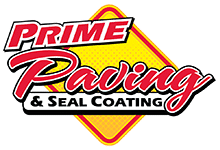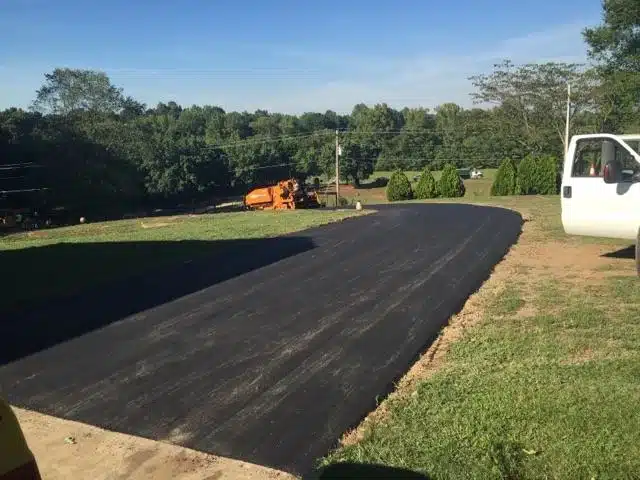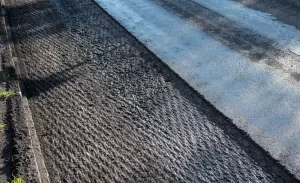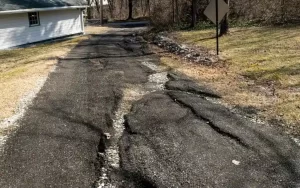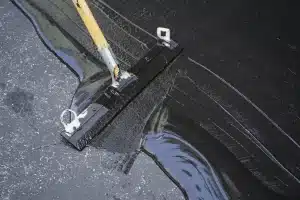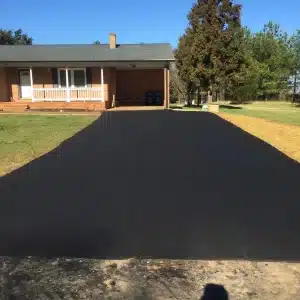Blacktop and asphalt are two commonly confused terms, often being used interchangeably by the public. However, while very similar, blacktop and asphalt are in fact different types of paving.
In their most basic form, Asphalt and Blacktop share the same ingredients. The differentiator is how these types of paving are mixed. Asphalt is a mix of bitumen (an oil derivative good for holding things together) and crushed rocks. These ingredients are combined at a specific ratio, then cooked at 250 degrees Fahrenheit. Blacktop uses the same mix but is cooked at a higher temperature (350 degrees) with a different ratio of materials that uses more stone than bitumen.
The final product of these different mixes varies in texture and application. If done correctly, asphalt becomes a tightly packed, waterproof, smooth surface. This makes asphalt great for highways and heavily trafficked roads. addition to road use, asphalt can be applied for waterproofing, and even soundproofing. The lack of air space left in asphalt makes it a great barrier for keeping things out. It’s also very durable and can take a beating, but does tend to crack over time due to hardened nature.
Blacktop, in a way, is a subdivision of asphalt and tends to appear in more residential areas that don’t handle incredible loads like highway traffic. Unlike asphalt, blacktop has many air-pockets due to its higher mixture of crushed stone. This results in a flexible and economical surface that tends to be on the rougher side. The good news is with blacktop, repairs are more economical and less troublesome since the material bends under pressure and is easily re-sealable. Depending on the use and location, blacktop is also less waterproof and is better for perfectly flat surfaces, such as basketball courts.
So how do you choose between asphalt or blacktop?
On the surface, asphalt definitely appears to be the more attractive option. Less wear and tear on tires, great for highly trafficked areas and an attractive and smooth surface, great for redirecting water sources if paved properly. However, asphalt is expensive and is more bothersome to repair. Blacktop is flexible, easy to repair, but less resilient to heavy use. One is not necessarily better than the other, it all comes down to budget and needs. If used in a driveway or recreational area, most people will hardly notice the benefits of asphalt over the blacktop. But, if your planning on paving a more commercial area, maybe one that frequents heavy equipment and takes a beating, asphalt might be the way to go.
If you’re still feeling unsure of which type of paving will be best for you, Prime Paving and Seal Coating are readily available to answer any questions while providing complimentary quotes.
Please feel free to reach out to us at 336.981.8539
